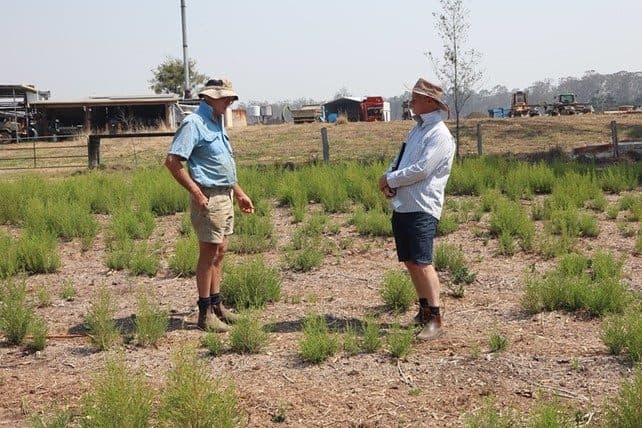How will this research benefit the tea tree oil industry? Are there any learnings beyond this industry?
This scoping study will help to guide more detailed and extensive longer-term efforts to optimise tea tree nutrition strategies in plantations of different ages and on different soil types. In the longer term, this will make an important contribution to improved yield and profitability for all Australian tea tree oil producers. Helping the tea tree oil industry to address economic and sustainability issues related to crop nutrition and soil fertility will contribute to industry resilience and diversifying rural employment and business opportunities.
The outcomes may also be relevant to other perennial crops in Australia, including other essential oil crops, as well as tree, bush and vine crops. There is likely to be great potential to improve nutrition management in these crops. Many of these are individually relatively “small-scale” but when put together make a sizeable contribution to Australia’s agricultural production and job creation.
What’s the best piece of professional/career advice you’ve ever been given?
I probably couldn’t pick one big gong moment. I think advice has come to me more generally from the school of life; like a big mosaic of a thousand little of good ideas. I am always listening to everyone (from the cleaner and farm-hand, to the boss in the office) and then filtering it through my own values and aspirations. It seeps in, and I change bit by bit.
What have you learned about the tea tree oil industry from the growers/producers you have been involved with?
In our work with the industry so far, we have learned several important things that I feel are relevant to all researchers working with this industry. There have been a couple of things that have resonated:
- Despite outward appearances of homogeneity, every tea tree plantation is managed differently. Therefore, research outputs need to be flexible and adaptable to these different circumstances.
- Tea tree oil producers are willing to learn and adopt new ways of thinking. Many have completed formal or informal on-farm trials to explore new management options. The industry is therefore likely to embrace changes that deliver proven productivity, efficiency and profitability benefits.
Learn more about this project here.










